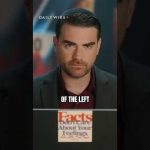As the calendar turned to 2025, many gathered in celebration, joy, and hope, welcoming the New Year with open arms. However, in New Orleans, a dark tragedy was unfolding. On that fateful night, 15 lives were lost, and 35 others were forever marked by chaos and fear. This incident brought forth a grim reminder that terrorism does not discriminate; it can emerge from even the most unexpected places, affecting communities and families not just from afar but from within.
This story centers around Shamsud-Din Jabbar, an Army veteran from Texas who succumbed to a deadly ideology driven by hate. His life was once typical. Born and raised in Houston, he served his country, engaging in administrative work rather than combat. Yet, during his deployment, he caught a glimpse of a world filled with animosity and violence. While many might assume that radicalization happens overnight, this narrative shows a slow burn—a gradual descent into darkness that could have easily been overlooked. It serves as a somber reminder of how important vigilance is, not only from law enforcement but also from family, friends, and community members.
As Jabbar’s journey turned towards radical ideologies, he is said to have traveled abroad, aligning himself with ISIS and making threats against those he once cared for. Although he did not carry out physical harm against his family, the chilling reality is that he turned his anger outward. The trajectory of his life, filled with anger and hate, goes against the ideals of selfless service he once embodied in the military. This dangerous transition highlights that the battle against terrorism is not exclusively fought in foreign lands but also includes the struggle against ideologies that take root within our own communities.
Chillingly, the attack itself showed a level of planning and sophistication that raised critical questions about how a citizen could gain access to dangerous weaponry and knowledge without raising alarms. Using modern technology, Jabbar scouted locations in New Orleans, turning innovative tools designed for convenience into instruments of terror. As he went about mapping out his horrifying intentions, many remained blissfully unaware. This begs the question: how can such a transformation be overlooked? It reflects broader vulnerabilities in our societal and security structures, suggesting that complacency may very well usher in future tragedies if left unchecked.
This tragedy isn’t limited to New Orleans; it serves as a disquieting warning for the entire nation. Terrorism can strike anywhere—whether it be a holiday parade, a concert, or a marathon. It reminds us that complacency creates cracks in our security, and these gaps threaten our safety at every level. The narrative of Shamsud-Din Jabbar must lead us to reevaluate how we address national security, technology, and radical ideologies. It compels us to confront uncomfortable truths about our preparedness and the fragility of our systems, emphasizing the urgent need for a reevaluation of borders, policies, and what it truly means to keep communities safe.
The tragedy should act as a catalyst for change in how we view and manage the intersection of freedom, security, and compassion. As the new year begins, it is essential that we acknowledge both the risks and responsibilities we bear as a society to foster safety, nurture vigilance, and ultimately prevent such crises from taking root. The loss of 15 lives in New Orleans should ignite a passionate discussion about our national security priorities, forcing us to forge a path that holds individuals accountable for their actions while ensuring that our communities remain resilient against the undercurrents of hate and division.




